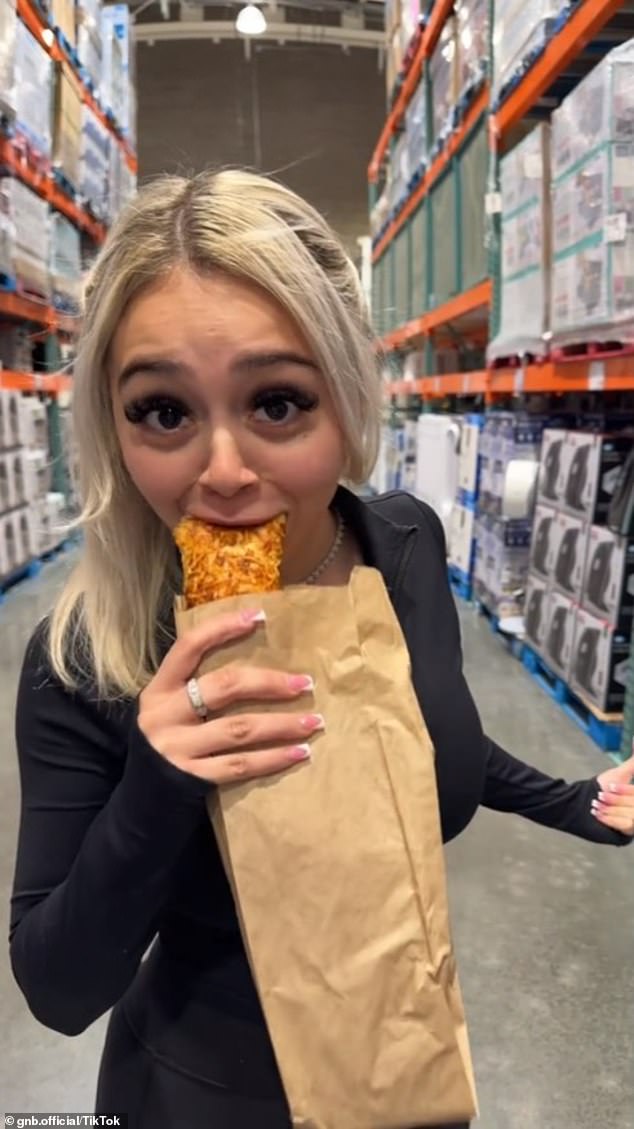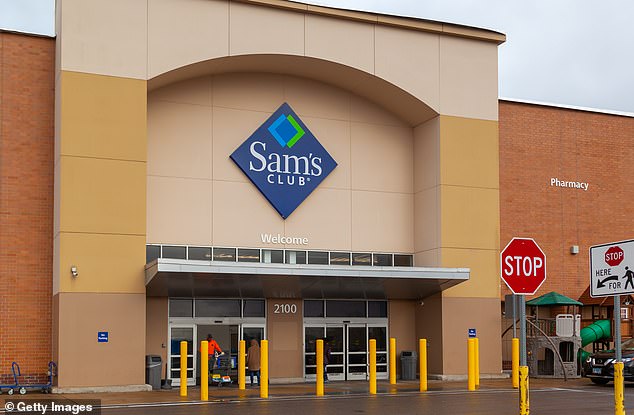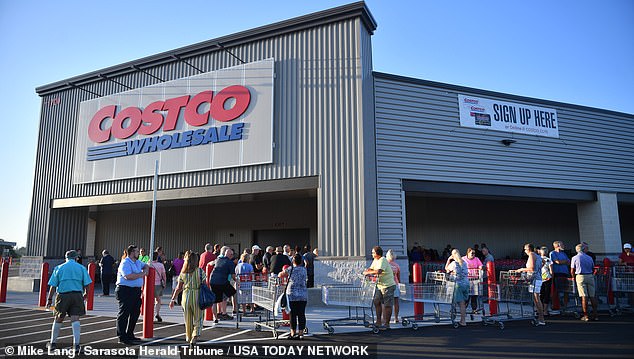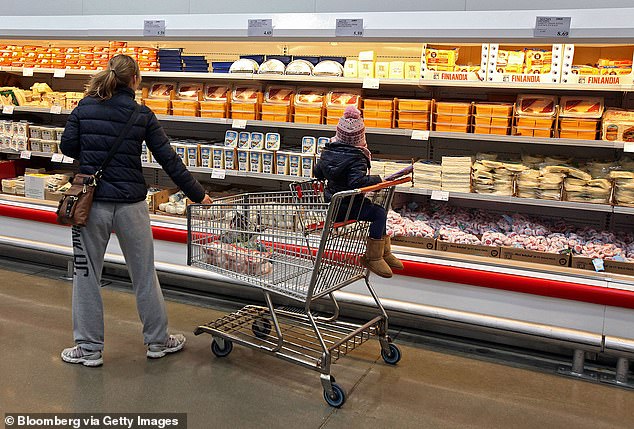Gen-Z are discovering joys of Costco for discounts on groceries – and have clever hack to save money on bulk-bought food
Generation Z has discovered a clever trick to combat rising prices. They go to large retail chains that sell items in bulk and divide the purchases among their friends.
Even twenty- and thirty-somethings without children are suffering from inflation and are turning to big retail giants like Costco and Sam’s Club to stretch their grocery budgets.
Sam’s Club, owned by Walmart, is seeing explosive growth among its youngest members. A recent surge has Gen Z shoppers (27 and under) leading the way, with a whopping 63% increase over the past two years, reports the Wall Street Journal.
This younger generation, along with millennials (28 to 43 years old), now make up a significant portion of Sam’s Club’s membership, making up a quarter of its total base.
According to Rupesh Parikh, senior analyst at Oppenheimer, the increase in the number of Gen Z members can be attributed to two factors.
Gen Z has discovered a clever trick to combat higher prices by turning to large retail chains that sell items in bulk and splitting the cost among their friends.

Shoppers in their 20s and 30s without families are feeling the pinch of inflation and are turning to big retail giants like Costco and Sam’s Club to stretch their grocery budgets
First, it coincides with the period when Generation Z is coming of age and starting their own households.
Secondly, these young shoppers are attracted to the cost savings that bulk buying offers. They see the large quantities, such as those huge crates of tomato sauce and jumbo chicken boxes, as an opportunity to split the cost with housemates, friends or family.
A recent survey of over 1,000 people by market research firm Advantage Solutions found that nearly 40% of respondents, aged 25 to 34, said they share their bulk shopping with others
And Gen Z isn’t alone in shopping this way: a third of survey participants said they split up their large purchases.

Sam’s Club, owned by Walmart, is seeing explosive growth among its youngest members
Grocery prices may be coming down slightly from their peaks in 2022 and 2023, but Americans are still feeling the pressure at the checkout counter.
According to the latest data from the Department of Agriculture, consumers spend an average of 11.2% of their disposable income on food, reflecting the continued impact of inflation.
While wholesale clubs like Costco and Sam’s Club are reporting net sales growth this year, they aren’t advocating for members to share their memberships to take advantage of the benefits.
Both stores are taking steps to limit the number of guests, with Costco even conducting ID checks.
To overcome the barrier of membership fees, some young shoppers, like Andrew Watson and his housemates, split their memberships.

While warehouse clubs like Costco and Sam’s Club are reporting net sales growth this year, they’re not fans of members sharing their memberships to take advantage of the benefits.
Watson, a medical student, told the WSJ he splits the cost with his roommates so they can stock up on staples like chicken breasts at a discount.
“We come together every day as a house. It really helps us be cohesive,” Watson said. “Buying in bulk is a no-brainer.”
The practice extends beyond student housing. Autumn Lucy, a tech worker, told WSJ that she uses her mother’s membership to buy in bulk with her sister.
However, bulk buying with membership sharing also has its drawbacks. Devak Nanda, a recent college graduate, told WSJ that he discovered the limitations firsthand.
The long walks to Costco, the limited storage space in their apartment, and the pressure to consume large quantities before it went bad became drawbacks.

To overcome the barrier of membership costs, some young shoppers share their membership with friends and family
Nanda even decided to create a spreadsheet to track their expenses, but eventually found that the savings weren’t big enough to justify the effort.
“My first little problem was that basically everything you buy, especially if you cook, you’re going to eat it for a while,” Nanda said. “It gets pretty boring.”
He jokingly admits that the only real perk was the store’s famous deal for a hot dog and soda for $1.50.
